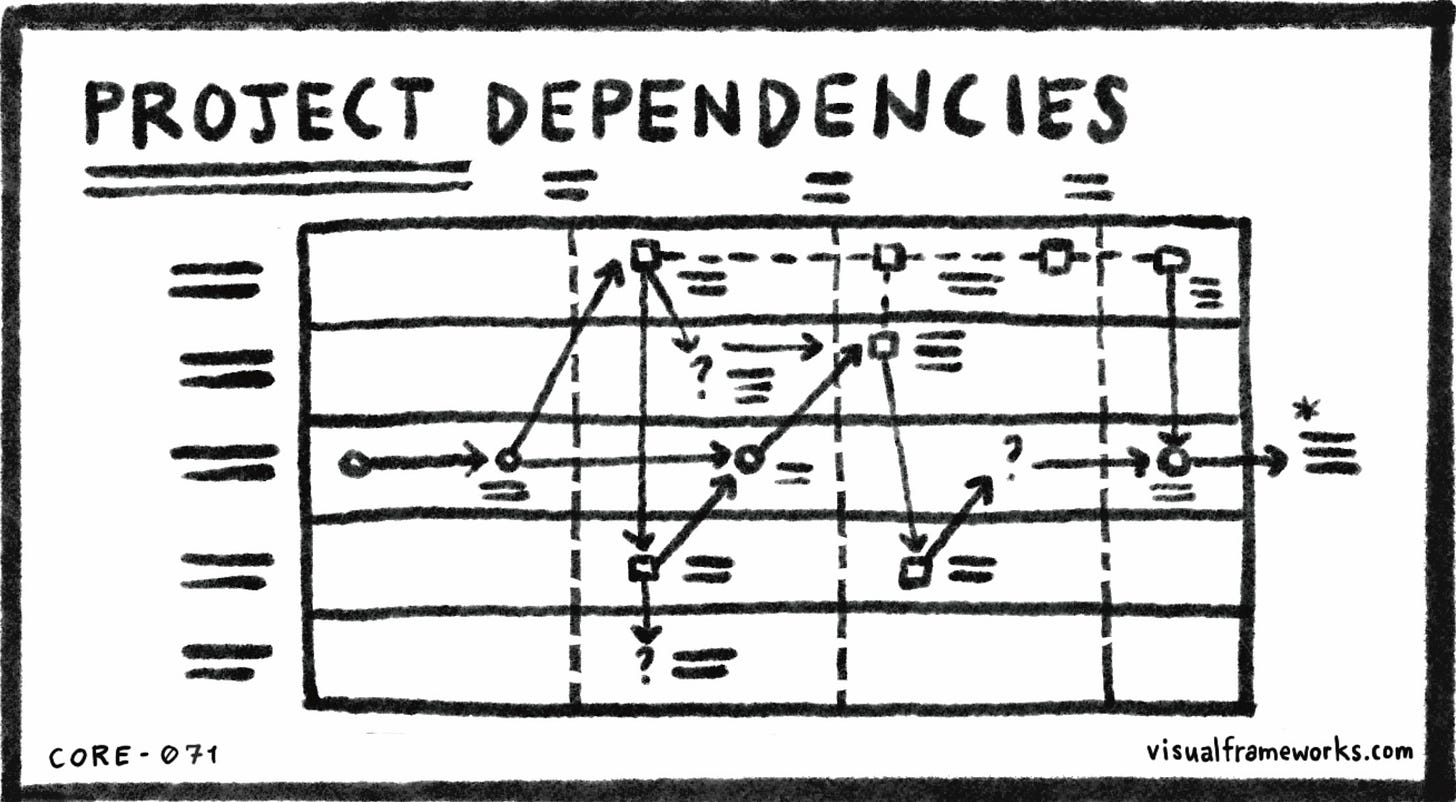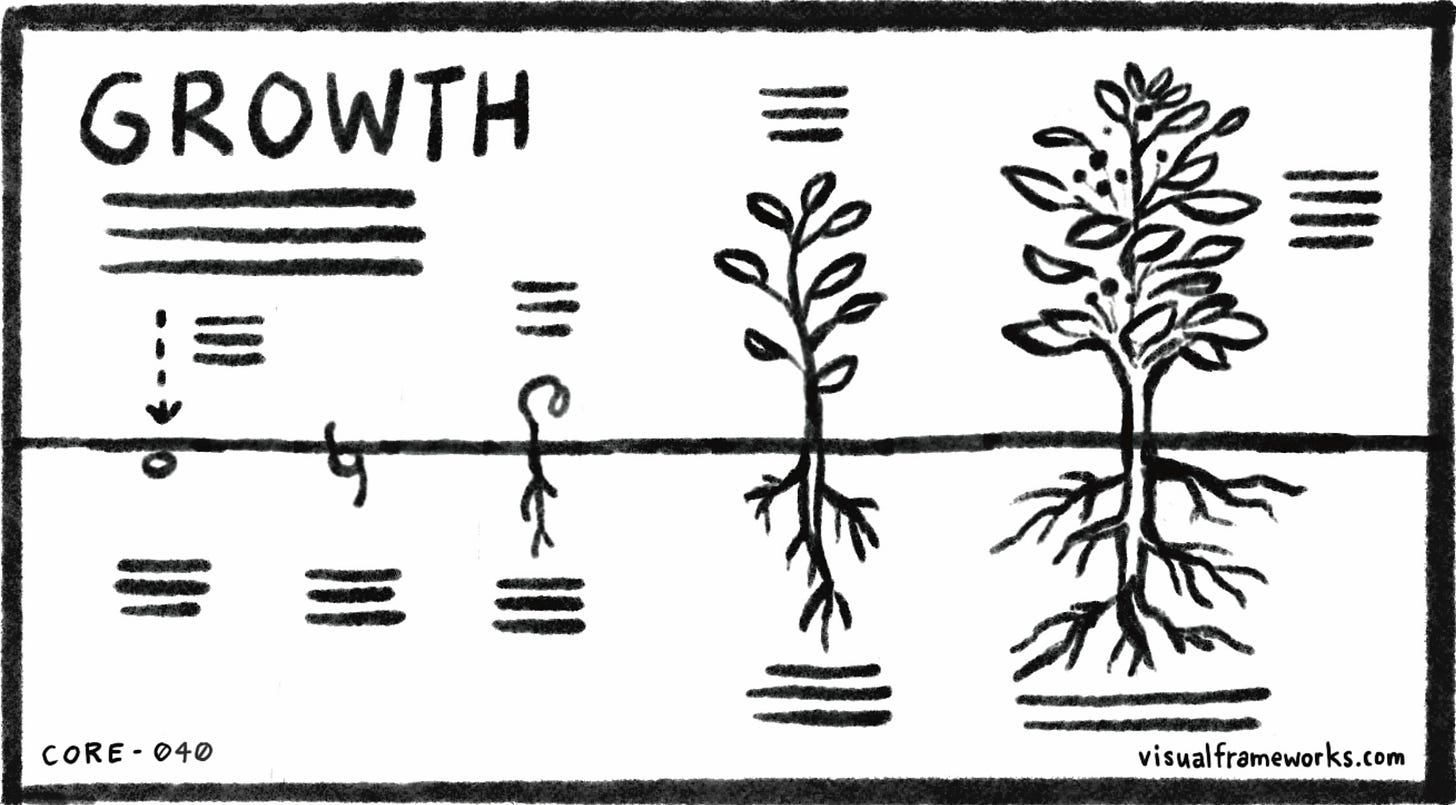The Monday memo is food for thought to fuel your week.
Hello everyone,
I’ve been thinking a lot about time lately. In a sense, time is all you have. It’s your primary non-renewable resource. You make choices about how you use it (or not), and the way you use it, eventually, becomes your life.
“So the hours are pretty good then?' he resumed.
The Vogon stared down at him as sluggish thoughts moiled around in the murky depths.
Yeah,' he said, 'but now you come to mention it, most of the actual minutes are pretty lousy.”
― Douglas Adams, The Hitchhiker’s Guide to the Galaxy
Many of us live by factory time. The clock strikes a drumbeat, and you march to the beat of the drum. Get up, go to work, go to this meeting, go to that meeting, eat lunch, the whistle blows, punch out, go home. Your calendar fills up in advance to form a schedule. Next week you will be going to this meeting, then that meeting. Somebody needs to schedule another meeting. These are the times you have available.
There’s nothing wrong with the drumbeat. It creates a rhythm, a cadence, and a flow of activities. It keeps the assembly line running. It keeps you busy.
One thing I noticed over years of managing teams is that, in general, people like to be productive. They like to feel like their work matters. But if they can’t be productive, most people will settle for being busy. As long as you’re busy, you know that your time is important. At least, it feels that way.
The nature of business is busy-ness. But busy-ness does not always lead to the best kinds of outcomes. Factory time, generally, is better at maintaining a status quo than it is at adjusting and adapting. Factory time is somewhat mechanical. It’s focus is on doing, on meeting the schedule, and it doesn’t leave much room to notice and nurture what is emerging, what is becoming.
There is another kind of time that’s more useful when you are trying to create new things, when you are not sure what you are doing, when you want to focus on what is emerging. Once you start looking for emergence, you will see it around you all the time.
Nascent, emergent phenomena benefit when you think like a gardener. A clock and a schedule won’t help your garden grow. Seeds germinate when certain environmental conditions are met, and not before. Plants grow according to their own internal rhythms, and they grow at their own pace. As someone said in a recent Campfire call: “you can’t make the grass grow faster by pulling it out of the ground.”
Exercise.
So here’s your exercise for the week: Think about what is emerging in your life and work right now. What happens when you think of it in gardening terms? What seeds are you planting? What can you do to make the environment more welcoming? What are the weeds that are clogging the soil? What needs to be watered? What does overwatering look like? What needs to be pruned?
Gardeners need to think in the long term. To be a good gardener you must time your activities, not according to what’s best for you, but according to the conditions of the surrounding environment. Seeds need to be planted at the right time of year. There is a lot of work involved before anything useful or beautiful emerges.
What is emerging? What is the pace at which it needs to percolate? What are its natural rhythms? How can you make space for it to grow at its own pace?
Updates:
We had more than 100 people register for our Open House last week! If you missed it, here is some follow-up information and some of the recordings.
Our Friday Campfire calls are free to join, anyone is welcome, and we talk about things that are fueling our creative energy and inspiring us. The energy is infectious. Even if you’re stuck, or don’t feel like you have anything interesting to add, if you have the time, join anyway. I promise you’ll enjoy it.
Instructions to join the Friday Campfire and/or add it to your calendar.
Collaboratories are held on the first and third Wednesdays of every month. They are free for members. The next few Collaboratories will be on sketching experiences, cultivating love in leadership, and sketching projects. Members also get access to recordings of previous collaboratories and the full email archive. Become a member by upgrading your subscription.
As of this week we have 57 members. The first 100 members will lock in the $20/month, $200/year rate.
If you’re already a member, thank you. You’re making this possible.



